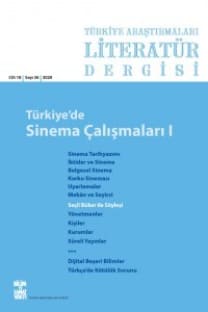Cumhuriyet Dönemi Telif Tefsirler
Osmanlı’nın son döneminde dinî meseleler daha ziyade şeriat ve fıkhın güncelleştirilmesi ekseninde tartışılırken, Cumhuriyet’in ilk yıllarında ulus devlet ideolojisi ve millî din yaratma politikasının önemli bir ayağı olarak Kur’an’ın Türkçe tercümesi ve ana dilde ibadet gibi meseleler ön plana çıkarılmıştır. Türk halkını kendi dilinde Kur’an ile buluşturma arzusunun siyasi irade tarafından kışkırtılmasına bağlı olarak 1924 yılı içerisinde ilk Türkçe Kur’an tercümeleri halkla buluşmuş ve fakat bu tercümeler dinî, ilmî, fikrî saiklerle ciddi itirazlara konu olmuştur. Bütün bu gelişmelerin yaşandığı siyasî-ictimâî konjonktür aynı zamanda Cumhuriyet dönemine ait ilk ve en önemli Kur’an tefsirinin de vücuda gelmesine vesile olmuştur. Ancak Hak Dini Kur’an Dili (Yeni Mealli Türkçe Tefsir) adlı bu tefsirin yazarı Elmalılı Muhammed Hamdi Yazır özellikle dinîn millîleştirilmesi ve ibadet dilinin Türkçeleştirilmesi projesine karşı ödünsüz bir tavır takınmıştır. Telif edildiği zamandan bugüne değin haklı bir itibar kazanan ve tefsir sahasında hiçbir dinî grubun sansürüne uğramaksızın temel kaynak olarak kullanılan Hak Dini Kur’an Dili’nin okuyucuyla buluştuğu 1930’lu yıllardan bugüne kadar farklı ilgiler, eğilimler ve hedeflere bağlı olarak otuz civarında tefsir kaleme alınmış ve fakat bunların hiçbiri en azından bize göre Hak Dini’ni aşamamıştır
Anahtar Kelimeler:
Kur’an Tefsiri, Türkiye Cumhuriyeti, tek parti dönemi, Tefsir çalışmaları, Elmalılı Muhammad Hamdi Yazır, Hak Dini Kur’an Dili.
Tafsīr Works in the Republican Period
The religious discussion during the last period of the Ottoman Empire revolved around a re-interpretation of sharia and the Islamic Law according to the needs of the current times. Issues such as the translation of the Qur’an into Turkish and worship in the native language were prioritized in the early phase of the Republic. These issues were in fact conceived as a first step to the creation of the ideology of a nation state along with a national religion. As a part of this vision, the first Turkish translations of the Qur’an were published in 1924. These works, however, were subjected to heavy criticism with reference to their religious and scholarly qualities. On the other hand, the political and social conjuncture of the period also led to the production of the most important Turkish exegesis of the Qur’an: Elmalılı Muhammed Hamdi Yazır’s Hak Dini Kur’an Dili. It is important to note that Yazır stood firm against the project of nationalizing religion and vernacularizing the language of worship. This work received an overall well-earned respect and appreciation and is still being used as a standard reference work of tafsir by all religious groups without any censorship. Despite the publication of about thirty works of exegesis serving different interests and aims ever since the 1930s, none other has surpassed the quality of Yazır.
Keywords:
Qur’anic exegesis and commentary Turkish Republic, Single-party period, Tafsir Studies, Elmalılı Muhammad Hamdi Yazır, The Religion of God, The Language of the Qur’an (Hak Dini Kur’an Dili).,
- ISSN: 1303-9369
- Başlangıç: 2003
- Yayıncı: Bilim ve Sanat Vakfı
Sayıdaki Diğer Makaleler
Cumhuriyet Dönemi Telif Tefsirler
Elmalılı Muhammed Hamdi Yazırın Tefsiri ve Hakkında Yapılmış Çalışmalar Bibliyografyası
Kur’an Araştırmalarına Batılı Yaklaşımlar ve Türkiye’ye Etkileri
Türkçedeki Kur’an Meâllerinin Tarihi ve Kronolojik Bibliyografyası
Cumhuriyetin İlanından Günümüze Kuran Tercümeleri Üzerine
Cumhuriyet Dönemi Tefsir Çevirileri
Türkçedeki Kur’an Meâllerinin Tarihi ve Kronolojik Bibliyografyası
